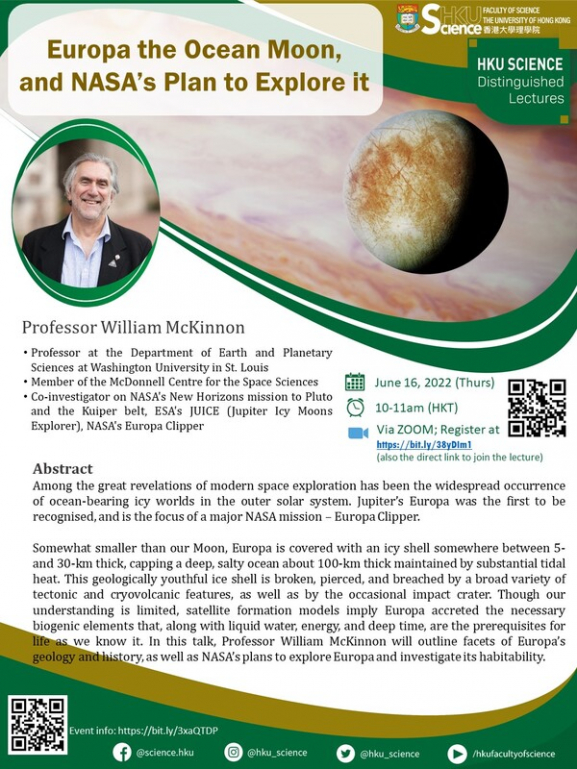 HKU Department of Earth Science
HKU Department of Earth Science
News

Distinguished Lecture - Europa the Ocean Moon, and NASA’s Plan to Explore it
Life and Planetary Evolution | June 16, 2022
Among the great revelations of modern space exploration has been the widespread occurrence of ocean-bearing icy worlds in the outer solar system. Jupiter’s Europa was the first to be recognised, and is the focus of a major NASA mission – Europa Clipper.
Somewhat smaller than our Moon, Europa is covered with an icy shell somewhere between 5- and 30-km thick, capping a deep, salty ocean about 100-km thick maintained by substantial tidal heat. This geologically youthful ice shell is broken, pierced, and breached by a broad variety of tectonic and cryovolcanic features, as well as by the occasional impact crater. Though our understanding is limited, satellite formation models imply Europa accreted the necessary biogenic elements that, along with liquid water, energy, and deep time, are the prerequisites for life as we know it. In this talk, Professor William McKinnon will outline facets of Europa’s geology and history, as well as NASA’s plans to explore Europa and investigate its habitability.
| Date & Time | June 16,2022 (Thursday) | 10Am -11AM (HKT) |
| Venue | Zoom online Lecture (https://bit.ly/38Dlm1) |
| Speaker |
Professor William Mckinnon Department of Earth and Planetary Sciences at Washington University Member of the McDonnell Centre for Space Sciences Co-investigator on NASA's New Horizons mission to Pluto and the Kuiper belt, ESA's JUICE (Jupliter Icy Moons Explorer), NASA's Europe Clipper |
